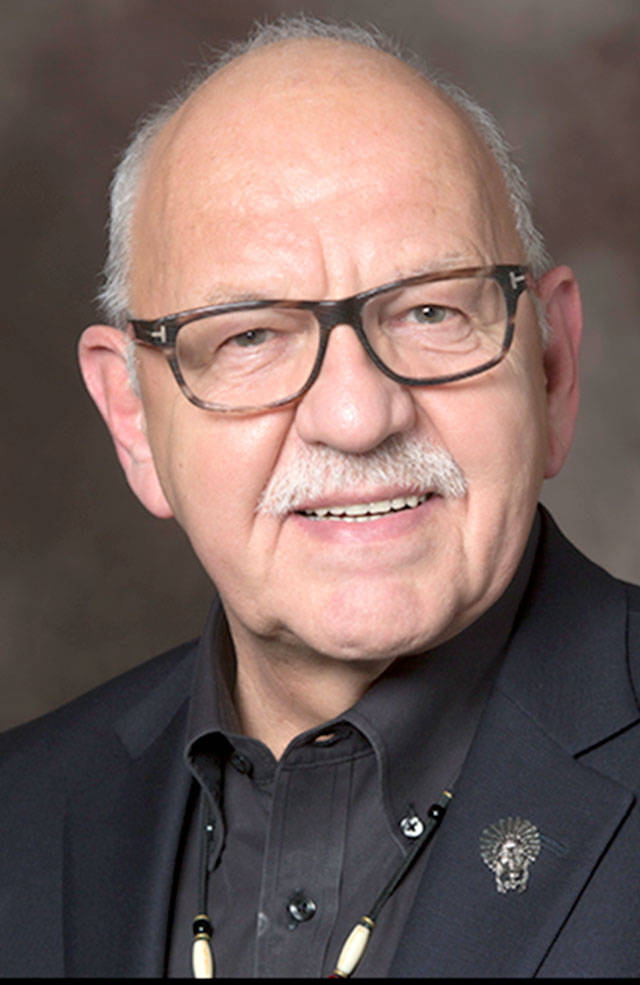By Frances Charles and W. Ron Allen
The fight to safeguard Washington state from serious impacts of climate change will not be won in Washington, D.C., or in Olympia, but in rural communities like Port Angeles, Sequim and Forks.
That’s a foundational principle embodied in Initiative 1631, the ballot initiative co-authored and co-managed by Washington’s tribes. When passed, I-1631 will enact the largest-ever investment in our state’s lands and ecosystems in order to counter the negative impacts of climate change on Washington.
I-1631 recognizes rural Washington as the economic and environmental front lines of our state’s fight against climate change.
With dedicated funding to both rural communities and projects endorsed by tribal governments, it is expected that I-1631 will direct annual investments of hundreds of millions of dollars to rural counties like Clallam and Jefferson counties.
The initiative directs that 35 percent of revenue be earmarked for disadvantaged communities — inner cities and rural counties such as Clallam and Jefferson.
I-1631 utilizes the best available science to invest in the most efficient and affordable policies and projects that avert carbon emission and support carbon sequestration, restoring our ecosystems and working lands.
The forestry communities of Western Washington have the most to gain from the fight against climate change. I-1631 recognizes Western Washington as the wood basket of the world, which is another way of addressing the best carbon sequestration system on Earth.
While some segments of the environmental community still view the forest products industry as an “enemy” given opposition to certain logging practices or even the concept of harvesting trees, it’s undeniable that managed tree farms that are harvested and replanted play a key role in both sequestering carbon and protecting forests from development, parasites, outbreaks and wildfire.
I-1631 moves past the culture wars of the 1980s and provides funding to prevent the conversion and fragmentation of working forests; expand their connectivity for wildlife; and fund restoration work that improves ecological systems reducing greenhouse gas emissions.
This initiative provides funding for promising new technologies like cross-laminated timber that sequester carbon in commonly used construction practices that avoid environmentally detrimental building materials.
The economy, environment and natural resources of the North Olympic Peninsula stand to gain in many other ways from I-1631.
Demonstrating the influence of Washington’s tribes, I-1631 — which is expected to raise $1 billion annually — provides 25 percent — expected to be $250 million — for a dedicated forest and water account to support the restoration of ecosystems that sequester carbon and support our tragically reduced fish stocks.
Demonstrating the influence of Washington’s tribes, I-1631 provides our state’s aquatic fisheries with a dedicated fund of an estimated $250 million annually to support the restoration of ecosystems that sequester blue carbon and support our tragically reduced fish stocks.
Farming communities like Sequim will see new economic support, as I-1631 breaks ground in recognizing the importance of funding farmland conservation and stewardship to secure reliable local food sources for our potentially perilous future.
Finally, I-1631 ensures that the burden of paying for climate change mitigation should not be carried disproportionately by rural communities who drive farther than if they lived in urban areas.
Given these factors, I-1631 invests in alleviating the cost of a carbon fee on working class Washingtonians, exempts multiple types of tribal natural resource management from fees and provides resources for rural communities to improve the energy efficiency of their equipment and operation.
By expanding broadband connectivity to rural areas, I-1631 eliminates unnecessary carbon emissions by Washingtonians who would prefer to work or shop from home if they had reliable internet service.
For a problem as vast and complex as climate change, there is no single policy that can do everything for everyone – the best you can hope for is balance and fairness.
We urge our community voters to support and vote yes to I-1631 because it begins to address the scientific certainty of climate change in an equitable fashion by requiring major corporate polluters to pay the cost of repairing the damage caused by their business sector.
________
Frances Charles is chairwoman of the Lower Elwha Klallam Tribe, and W. Ron Allen is chairman of the Jamestown S’Klallam Tribe.

